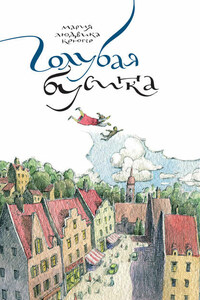It may be objected that anecdotes of duelling have more than their due proportion of space in these sketches, and that no writer should publish feats of that nature (if feats they can be called), especially when performed by persons holding grave offices, or by public functionaries. These are very plausible, rational observations, and are now anticipated for the purpose of being answered.
It might be considered a sufficient excuse, that these anecdotes refer to events long past; that they are amusing, and the more so as being matters of fact, (neither romance nor exaggeration,) and so various that no two of them are at all similar. But a better reason can be given; – namely, that there is no other species of detail or anecdote which so clearly illustrates the character, genius, and manners of a country, as that which exemplifies the distinguishing propensities of its population for successive ages. Much knowledge of a people will necessarily be gained by possessing such a series of anecdotes, and by then going on to trace the decline of such propensities to the progress of civilization in that class of society where they had been prevalent.
As to the objection founded on the rank or profession of the parties concerned, it is only necessary to subjoin the following short abstract from a long list of official duellists who have figured away in my time, and some of them before my eyes. – The number of grave personages who appear to have adopted the national taste, (though in most instances it was undoubtedly before their elevation to the bench that they signalised themselves in single combat,) removes from me all imputation of pitching upon and exposing an unusual frailty; and I think I may challenge any country in Europe to show such an assemblage of gallant judicial and official antagonists at fire and sword as is exhibited even in the following list.1
Earl Clare, Lord Chancellor of Ireland, fought the Master of the Rolls, the Right Honourable John Philpot Curran, with twelve-inch pistols.
The Earl of Clonmell, Chief Justice of the King’s Bench, fought Lord Tyrawly, about his wife, and the Earl Landaff, about his sister; and others, with sword or pistol, on miscellaneous subjects.
The Judge of the County of Dublin, Egan, fought the Master of the Rolls, Roger Barrett,2 and three others; one with swords.
The Chancellor of the Exchequer, the Right Honourable Isaac Corry, fought the Right Honourable Henry Grattan, a privy counsellor, and the chancellor was hit. He also exchanged shots or thrusts with two other gentlemen.
A baron of the exchequer, Baron Medge, fought his brother-in-law and two others – a hit.
The Chief Justice, C. P., Lord Norbury, fought Fire-eater Fitzgerald, and two other gentlemen, muzzle to muzzle, and frightened Napper Tandy and several besides: one hit only. – Napper was near being hanged for running away!
The Judge of the Prerogative Court, Doctor Duigenan, fought one barrister and frightened another on the ground. – The latter case a very curious one.
The First Counsel to the Revenue, Henry Deane Grady, Esq., K. C., fought Counsellor O’Maher, Counsellor Campbell, and others: – very stout work.
The Right Honourable the Master of the Rolls fought Lord Buckinghamshire, (Chief Secretary, &c.) because he would not dismiss an official person.
The Provost of the University of Dublin, the Right Honourable Hely Hutchinson, fought Mr. Doyle, master in Chancery: they went to the plains of Minden to fight!
N.B. The spirit of the Hutchinson family was proverbial, and their good nature was no less so.
The Chief Justice C. P. Patterson fought three country gentlemen, one of them with swords, another with guns, and wounded all of them.
The Right Honourable George Ogle, the Orange chieftain, a privy counsellor, fought Barny Coyle, a whiskey distiller, because he was a papist. – They fired eight shots without stop or stay, and no hit occurred: but Mr. Ogle’s second broke his own arm by tumbling into a potatoe-trench.
Sir Harding Gifford, late Chief Justice of Ceylon, fought the rebel General Bagenal Harvey at a place called the Scalp, near Dublin. The Chief Justice received a severe, but very odd wound. – He eventually, however, suffered no important injury.
Counsellor Dan O’Connell fought the Orange chieftain, who had been halloo’d at him by the corporation. The champion of Protestant ascendancy never rose to fight again.










